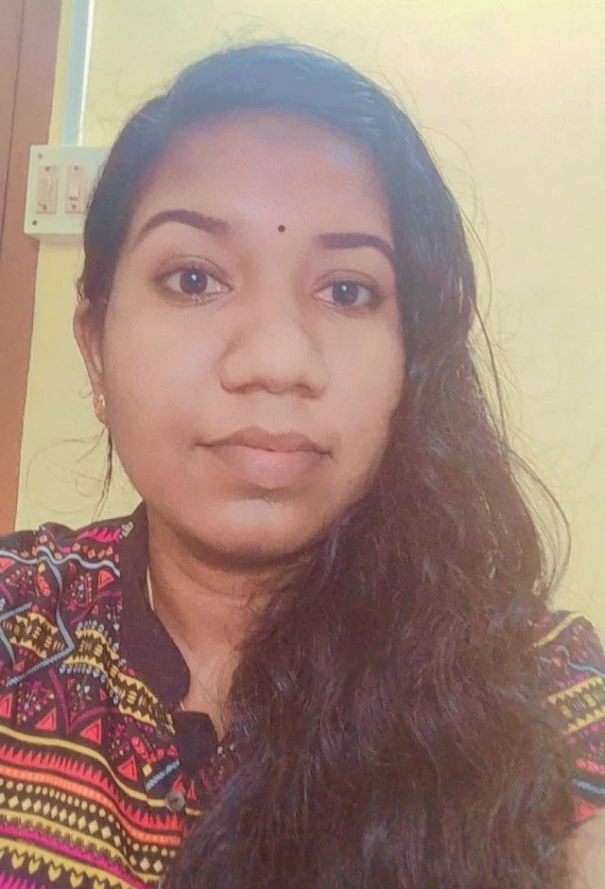Sunitha M. R.
Project Assistant
Developmental biology of marine macroalga Sargassum wightii at molecular level and identification of growth factors and microbiome for application in micro-propagation.
Developmental biology of marine macroalga Sargassum wightii at molecular level and identification of growth factors and microbiome for application in micro-propagation.
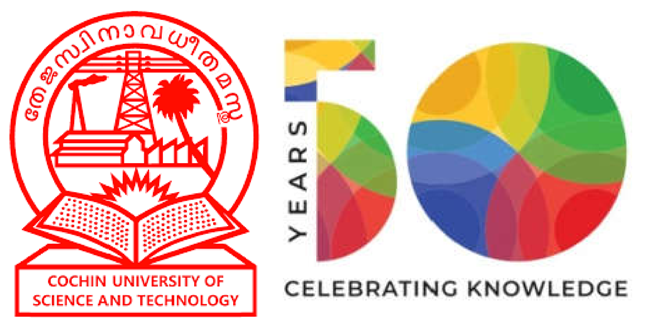
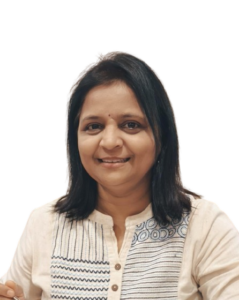 Dr. Megha Bedekar is a veterinary Microbiology and biotechnologist working in the area of veterinary and fish health for 20 years. Her research areas are application of advanced tools for development of vaccine and diagnostics for aquatic animals.
Dr. Megha Bedekar is a veterinary Microbiology and biotechnologist working in the area of veterinary and fish health for 20 years. Her research areas are application of advanced tools for development of vaccine and diagnostics for aquatic animals.
She is inventor of India’s first commercial fish vaccines for important fish diseases. She has developed DNA vaccine for bacterial disease of ruminant ie Chron’s disease and for edwardsiolesis in fish. Apart from the vaccine research Dr. Megha Bedekar has an expertise in developing advanced disease diagnostics for fish and animal viruses. Her group has developed non invasive ELISA test and molecular diagnostics for viral disease like Infectious bronchitis and Infectious bursal disease in poultry and Tilapia lake virus and Tilapia parvo virus in fish. Recently her lab has developed CRISPR based highly sensitive point of care diagnostic test for tilapia lake virus and whit spot syndrome virus of shrimp which are under patent process. Her lab is NABL accredited laboratory for testing of the OIE listed shrimp and fish pathogens.
Dr. Megha has guide 32 veterinary and Fisheries post graduate students and students for Mumbai University. She has completed 11 externally funded projects funded by DBT, DST, NAIP and NASF. Recently she in leading four externally funded projects including National Reperral Laboratory project undr NSPAAD II funded by PMMSY, National project of fish health funded by ICAR, CRISPR based disease diagnostic for fish viruses funded by CRPV&D ICAR and consultancy project for testing vaccine, immunostimulants and diagnostic kits for companies like Indian Immunologicals, and HiMedia.
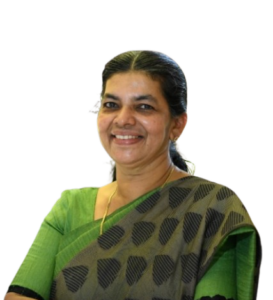 Prof. Rosamma Philip, former Dean of the Faculty of Marine Sciences, is a distinguished academic and researcher known for her significant contributions to aquaculture and marine biology. With a career spanning decades, she has been instrumental in advancing research on marine ecosystems, aquaculture practices, and aquatic organism health.
Prof. Rosamma Philip, former Dean of the Faculty of Marine Sciences, is a distinguished academic and researcher known for her significant contributions to aquaculture and marine biology. With a career spanning decades, she has been instrumental in advancing research on marine ecosystems, aquaculture practices, and aquatic organism health.
Her work has focused on sustainable aquaculture practices, with particular attention to water quality management, fish nutrition, and disease prevention. Prof. Philip has been a strong advocate for environmentally friendly aquaculture, emphasizing the use of biosecurity measures and innovative technologies to enhance productivity while safeguarding aquatic ecosystems.
As a mentor and educator, she has inspired countless students and researchers, fostering a new generation of professionals in marine sciences. Prof. Philip’s impactful research, coupled with her leadership in promoting sustainable aquaculture practices, has significantly contributed to the growth and development of the aquaculture industry in India and beyond.
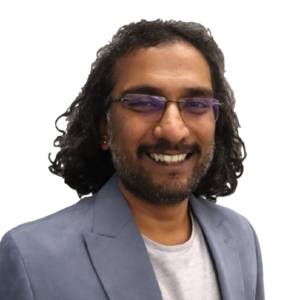 Dr. Parasuraman A. S., a Humboldt Postdoctoral Research Fellow at the Thünen Institute of Fisheries Ecology, Germany, is a skilled immunologist with over a decade of expertise in aquaculture and immunology research. His work focuses on enhancing fish health and disease resistance through immunomodulation and sustainable aquaculture practices.
Dr. Parasuraman A. S., a Humboldt Postdoctoral Research Fellow at the Thünen Institute of Fisheries Ecology, Germany, is a skilled immunologist with over a decade of expertise in aquaculture and immunology research. His work focuses on enhancing fish health and disease resistance through immunomodulation and sustainable aquaculture practices.
Currently, Dr. Parasuraman is investigating the effects of environmental enrichment on rainbow trout, exploring its role in reducing stress, boosting immune responses, and improving vaccine efficacy. His research highlights the potential of environmental enrichment as an immunostimulant, offering innovative solutions for disease management in aquaculture.
Dr. Parasuraman has earned prestigious accolades such as the DBT Research Fellowship and British Council-Newton Bhabha Fellowship. With a strong academic foundation, high-impact publications, and advanced technical expertise, his work contributes significantly to understanding adaptive immunity and developing sustainable practices to enhance aquaculture productivity and fish welfare.
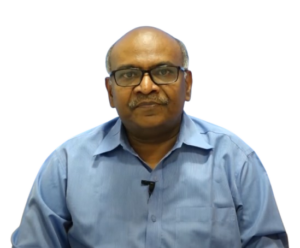 Shri G. Rathinaraj, a retired Senior Executive (Technical) from the National Fisheries Development Board (NFDB), Hyderabad, has made notable contributions to the development and promotion of aquaculture in India. With decades of experience, he has been instrumental in implementing innovative strategies to enhance aquaculture productivity, sustainability, and rural livelihoods.
Shri G. Rathinaraj, a retired Senior Executive (Technical) from the National Fisheries Development Board (NFDB), Hyderabad, has made notable contributions to the development and promotion of aquaculture in India. With decades of experience, he has been instrumental in implementing innovative strategies to enhance aquaculture productivity, sustainability, and rural livelihoods.
During his tenure at NFDB, Shri Rathinaraj played a key role in facilitating training programs, capacity-building initiatives, and the dissemination of advanced aquaculture technologies to farmers and stakeholders. His expertise in sustainable farming practices and resource management has greatly benefited small-scale and commercial aquaculture enterprises.
He has actively contributed to the adoption of best practices in fish farming, water quality management, and disease control, ensuring environmentally friendly and economically viable operations. Shri Rathinaraj’s dedication to empowering aquaculture practitioners has significantly advanced the sector, fostering growth, sustainability, and food security in the country.
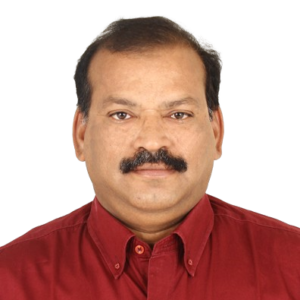 Dr. S. Kandan, the Director of the Rajiv Gandhi Centre for Aquaculture (RGCA), is a visionary leader and an expert in aquaculture development. Under his guidance, RGCA has made significant strides in advancing sustainable aquaculture practices, focusing on promoting innovative technologies and enhancing the productivity of aquaculture systems in India.
Dr. S. Kandan, the Director of the Rajiv Gandhi Centre for Aquaculture (RGCA), is a visionary leader and an expert in aquaculture development. Under his guidance, RGCA has made significant strides in advancing sustainable aquaculture practices, focusing on promoting innovative technologies and enhancing the productivity of aquaculture systems in India.
Dr. Kandan has been instrumental in the development and implementation of various aquaculture projects, including hatchery and farming technologies for high-value species like shrimp, sea bass, and ornamental fish. His leadership has been pivotal in establishing biosecure, eco-friendly aquaculture practices, ensuring sustainability while meeting the growing demands of the seafood industry. He has actively promoted the adoption of advanced breeding, larval rearing, and feed management practices, contributing to higher production efficiency. Dr. Kandan’s contributions have greatly influenced the modernization and sustainability of India’s aquaculture sector. His efforts in bridging research and practical application continue to support the growth of a vibrant and environmentally sustainable aquaculture industry in the country.
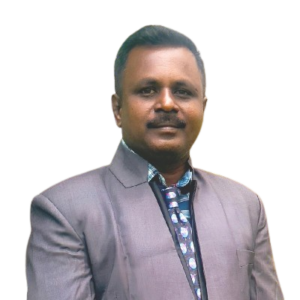 Prof. P. Chellapandi, Professor and Head of the Department of Bioinformatics at Bharathidasan University, Tiruchirappalli, is a distinguished academic with over 25 years of experience in research and teaching. His work integrates bioinformatics with sustainable technologies and healthcare solutions, contributing significantly to aquaculture advancements.
Prof. P. Chellapandi, Professor and Head of the Department of Bioinformatics at Bharathidasan University, Tiruchirappalli, is a distinguished academic with over 25 years of experience in research and teaching. His work integrates bioinformatics with sustainable technologies and healthcare solutions, contributing significantly to aquaculture advancements.
Prof. Chellapandi’s research focuses on genome-scale metabolic modeling and microbial engineering, which have applications in aquaculture, including optimizing nutrient utilization and waste management. His studies on microbial systems have led to the development of probiotics and metabolic inhibitors, enhancing fish health and immunity while reducing dependence on antibiotics.
Additionally, his expertise in synthetic biology has been instrumental in creating diagnostic tools and vaccine development for aquatic diseases. Prof. Chellapandi’s innovative approaches and interdisciplinary research have provided sustainable solutions to enhance aquaculture productivity and fish health, making him a key contributor to the advancement of bioinformatics in aquaculture.
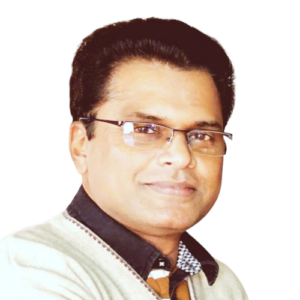 Dr. V. V. R. Suresh, Principal Scientist and Head of the Mariculture Division at ICAR-Central Marine Fisheries Research Institute (ICAR-CMFRI), is a distinguished scientist renowned for his significant contributions to aquaculture, particularly mariculture. With extensive expertise in the field, he focuses on sustainable mariculture, fisheries enhancement, and conservation.
Dr. V. V. R. Suresh, Principal Scientist and Head of the Mariculture Division at ICAR-Central Marine Fisheries Research Institute (ICAR-CMFRI), is a distinguished scientist renowned for his significant contributions to aquaculture, particularly mariculture. With extensive expertise in the field, he focuses on sustainable mariculture, fisheries enhancement, and conservation.
His research areas span different aquaculture systems, fish breeding, seed production for commercially important species in mariculture important finishes and shellfishes, fish feeds and nutrition, fish migration, fish germplasm exploration and conservation, fish stock assessment, invasive species risk assessment, and environment impact assessment.
He also contributed to application of computer-based applications for the real-time monitoring and management of cage culture systems.
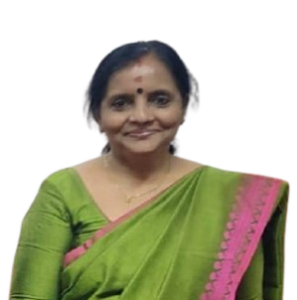 Dr. K. S. Sobhana, is a distinguished expert in marine biodiversity, environmental management, and sustainable aquaculture practices. Her research focuses on marine ecosystem conservation, the impact of environmental changes on aquaculture, and developing strategies to ensure sustainable utilization of marine resources.
Dr. K. S. Sobhana, is a distinguished expert in marine biodiversity, environmental management, and sustainable aquaculture practices. Her research focuses on marine ecosystem conservation, the impact of environmental changes on aquaculture, and developing strategies to ensure sustainable utilization of marine resources.
Dr. Sobhana has made significant contributions to the understanding of marine biodiversity and its role in aquaculture productivity. Her work involves assessing environmental impacts, mitigating pollution, and ensuring ecosystem health to support sustainable mariculture practices. She has been instrumental in promoting integrated approaches to aquaculture, combining biodiversity conservation with the enhancement of marine resource utilization.
Through her leadership at MBEMD, Dr. Sobhana has led initiatives to monitor and manage marine habitats, which are critical for the sustainability of aquaculture and fisheries. Her efforts extend to stakeholder engagement, where she collaborates with local communities, policymakers, and researchers to promote best practices in marine resource management.
Dr. Sobhana’s contributions are vital for the growth of environmentally sustainable aquaculture, ensuring the balance between marine biodiversity conservation and aquaculture development. Her work supports long-term food security and livelihoods in coastal regions.
 Dr. Basdeo Kushwaha, Principal Scientist and In-Charge of the National Repository of Fish Cell Lines (NRFC) at ICAR-National Bureau of Fish Genetic Resources (ICAR-NBFGR), Lucknow, is a renowned expert in fish cell culture, aquatic animal health, and biotechnology. His pioneering work in developing and maintaining fish cell lines has greatly contributed to the study of aquatic animal diseases, toxicology, and fish genetics, playing a vital role in the sustainable development of aquaculture.
Dr. Basdeo Kushwaha, Principal Scientist and In-Charge of the National Repository of Fish Cell Lines (NRFC) at ICAR-National Bureau of Fish Genetic Resources (ICAR-NBFGR), Lucknow, is a renowned expert in fish cell culture, aquatic animal health, and biotechnology. His pioneering work in developing and maintaining fish cell lines has greatly contributed to the study of aquatic animal diseases, toxicology, and fish genetics, playing a vital role in the sustainable development of aquaculture.
Dr. Kushwaha has been instrumental in establishing and expanding the NRFC, a unique facility housing numerous fish cell lines from diverse species. These cell lines serve as invaluable tools for studying viral pathogens, assessing environmental toxicity, and exploring genetic diversity. His research has provided insights into virus-host interactions, aiding in the development of diagnostic methods and disease management strategies for economically important fish species.
In addition to his research, Dr. Kushwaha actively contributes to capacity-building programs, training scientists and students in advanced cell culture techniques and molecular tools. His efforts in fostering collaborations between research institutions and the aquaculture industry have further strengthened fish health management practices. Dr. Kushwaha’s contributions continue to enhance the scientific understanding and sustainability of aquaculture in India.
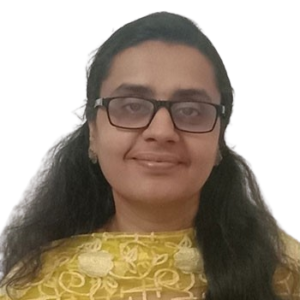 Dr. Preena P.G., Senior Lecturer at the Kerala University of Fisheries and Ocean Studies (KUFOS), Kochi, is a dedicated researcher and academic specializing in aquatic animal health and sustainable aquaculture practices. With extensive expertise in fish immunology, disease management, and microbiology, Dr. Preena has made significant contributions to advancing health management strategies for aquaculture species, particularly in addressing the challenges of emerging pathogens.
Dr. Preena P.G., Senior Lecturer at the Kerala University of Fisheries and Ocean Studies (KUFOS), Kochi, is a dedicated researcher and academic specializing in aquatic animal health and sustainable aquaculture practices. With extensive expertise in fish immunology, disease management, and microbiology, Dr. Preena has made significant contributions to advancing health management strategies for aquaculture species, particularly in addressing the challenges of emerging pathogens.
Her research focuses on understanding host-pathogen interactions, developing eco-friendly disease prevention strategies, and enhancing fish immunity through immunostimulants and probiotics. Dr. Preena’s studies have provided valuable insights into reducing the reliance on antibiotics, thereby promoting sustainable and responsible aquaculture practices. She has also worked on water quality management and biosecurity protocols to improve the resilience of aquaculture systems.
As an educator, Dr. Preena is deeply committed to training the next generation of fisheries professionals, delivering impactful lectures and guiding research projects that address pressing issues in aquaculture. She actively collaborates with industry stakeholders and farmers, sharing knowledge through workshops and capacity-building programs. Dr. Preena’s holistic approach to research, education, and outreach continues to support the sustainable growth of aquaculture, benefiting both the industry and coastal communities.
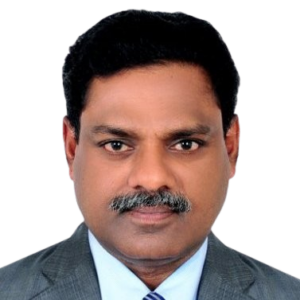 Dr. T. V. Anilkumar, Scientist G and Head of the Division of Experimental Pathology at the Sree Chitra Tirunal Institute for Medical Sciences and Technology, is a distinguished researcher known for his interdisciplinary contributions. With expertise in biomaterials, tissue engineering, and regenerative medicine, Dr. Anilkumar’s work has extended to developing sustainable solutions for aquaculture, particularly in the areas of health management and biomaterials for aquatic applications.
Dr. T. V. Anilkumar, Scientist G and Head of the Division of Experimental Pathology at the Sree Chitra Tirunal Institute for Medical Sciences and Technology, is a distinguished researcher known for his interdisciplinary contributions. With expertise in biomaterials, tissue engineering, and regenerative medicine, Dr. Anilkumar’s work has extended to developing sustainable solutions for aquaculture, particularly in the areas of health management and biomaterials for aquatic applications.
One of Dr. Anilkumar’s notable contributions is his research on the development of bioactive materials and polymers that can be utilized in aquaculture for disease management and water quality improvement. These innovations help in reducing the dependency on antibiotics and chemical treatments, promoting eco-friendly aquaculture practices. His work on biomimetic approaches has also paved the way for creating materials that can support the health and growth of aquatic organisms.
In addition to research, Dr. Anilkumar has collaborated with aquaculture scientists to explore the application of medical-grade technologies in improving aquatic animal health and welfare. His interdisciplinary approach bridges the gap between medical sciences and aquaculture, contributing to sustainable and innovative practices that enhance productivity and environmental balance in the aquaculture sector.
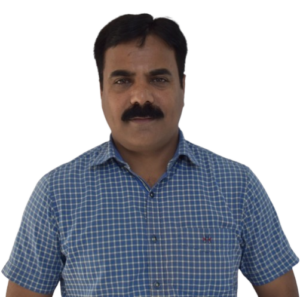 Dr. Imtiaz Ahmad Khan, a Professor in the Department of Zoology at the University of Kashmir, is a prominent researcher in the field of fisheries and aquaculture. With a strong focus on aquatic biodiversity, fish health, and sustainable aquaculture practices, he has made significant contributions to the development of aquaculture in the Himalayan and sub-Himalayan regions. His work emphasizes the sustainable management of aquatic resources and the conservation of endemic fish species while enhancing the productivity of aquaculture systems.
Dr. Imtiaz Ahmad Khan, a Professor in the Department of Zoology at the University of Kashmir, is a prominent researcher in the field of fisheries and aquaculture. With a strong focus on aquatic biodiversity, fish health, and sustainable aquaculture practices, he has made significant contributions to the development of aquaculture in the Himalayan and sub-Himalayan regions. His work emphasizes the sustainable management of aquatic resources and the conservation of endemic fish species while enhancing the productivity of aquaculture systems.
Dr. Khan’s research involves the assessment of aquatic ecosystems, fish genetics, and the impacts of environmental stressors on aquatic species. He has worked extensively on the development of aquaculture practices suitable for cold-water fish species, contributing to the livelihood improvement of communities in the region. His studies on fish diseases and health management have also provided critical insights into the prevention and control of diseases, improving the resilience and sustainability of aquaculture systems.
In addition to his research, Dr. Khan is a dedicated educator and mentor, fostering the next generation of fisheries scientists. Through his academic leadership, outreach programs, and collaboration with stakeholders, Dr. Khan has played a vital role in promoting sustainable aquaculture practices and conserving aquatic biodiversity in the region.
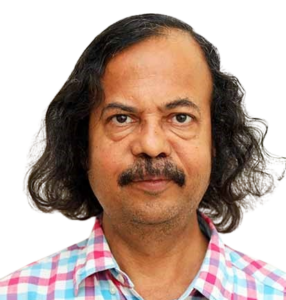 Dr. Subhendu Kumar Otta, Principal Scientist at the ICAR-Central Institute of Brackishwater Aquaculture (ICAR-CIBA), is a distinguished expert in aquatic animal health and aquaculture biotechnology. With extensive experience in disease diagnosis, pathogen characterization, and health management, he has made significant contributions to enhancing the sustainability and resilience of aquaculture systems, particularly in brackishwater environments.
Dr. Subhendu Kumar Otta, Principal Scientist at the ICAR-Central Institute of Brackishwater Aquaculture (ICAR-CIBA), is a distinguished expert in aquatic animal health and aquaculture biotechnology. With extensive experience in disease diagnosis, pathogen characterization, and health management, he has made significant contributions to enhancing the sustainability and resilience of aquaculture systems, particularly in brackishwater environments.
Dr. Otta’s research focuses on the molecular characterization of viral, bacterial, and parasitic pathogens affecting economically important species such as shrimp and finfish. His work has provided critical insights into the epidemiology and control of diseases, minimizing economic losses in aquaculture. He has also been instrumental in developing rapid diagnostic tools for early pathogen detection, which are vital for effective disease management and biosecurity.
In addition to disease prevention, Dr. Otta has contributed to studies on host-pathogen interactions, immune response mechanisms, and the development of probiotics and immunostimulants to enhance the health and productivity of cultured species. His work supports environmentally sustainable practices by reducing dependency on antibiotics.
Through his dedication to research, capacity-building programs, and farmer outreach, Dr. Otta continues to play a vital role in advancing sustainable aquaculture, ensuring food security, and supporting the livelihoods of coastal communities.
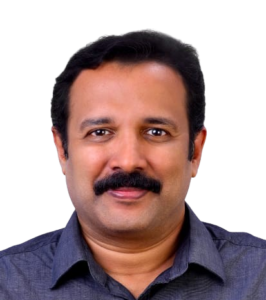
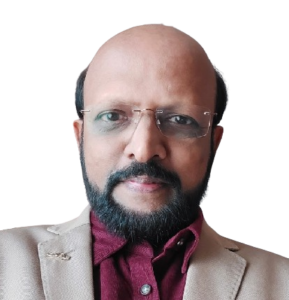 Prof. Felix Sugantham is a distinguished academic and researcher known for his significant contributions to aquaculture and fisheries science. With expertise in aquaculture management, aquatic animal health, and sustainable farming practices, he has been a driving force in advancing aquaculture technologies and practices that support productivity and environmental sustainability.
Prof. Felix Sugantham is a distinguished academic and researcher known for his significant contributions to aquaculture and fisheries science. With expertise in aquaculture management, aquatic animal health, and sustainable farming practices, he has been a driving force in advancing aquaculture technologies and practices that support productivity and environmental sustainability.
Prof. Sugantham has focused on areas such as fish breeding, hatchery management, and nutrition, developing innovative techniques to enhance the growth and survival rates of cultured species. His work on disease prevention and health management has been particularly impactful, addressing key challenges faced by aquaculture farmers. By integrating modern diagnostic tools and health monitoring systems, he has contributed to reducing the prevalence of diseases and improving the overall resilience of aquaculture systems.
In addition to research, Prof. Sugantham is deeply involved in teaching and training, mentoring the next generation of aquaculture professionals. His outreach activities include collaborating with stakeholders to promote best practices and empower small-scale farmers with knowledge and tools for sustainable farming.
Through his dedication to research, education, and community engagement, Prof. Felix Sugantham has played a pivotal role in shaping aquaculture as a sustainable industry, benefiting both the environment and livelihoods in the aquaculture sector.
 Dr. Thitiwan Patanasatienkul, is a distinguished expert in aquatic animal health, with significant contributions to global aquaculture. Her work focuses on advancing health management practices, disease prevention, and biosecurity in aquaculture systems to support sustainable production and trade in aquatic products.
Dr. Thitiwan Patanasatienkul, is a distinguished expert in aquatic animal health, with significant contributions to global aquaculture. Her work focuses on advancing health management practices, disease prevention, and biosecurity in aquaculture systems to support sustainable production and trade in aquatic products.
Dr. Thitiwan plays a key role in the development and implementation of international standards for aquatic animal health, ensuring compliance with WOAH guidelines and promoting global collaboration. She is actively involved in disease risk assessment, pathogen surveillance, and the dissemination of knowledge on effective health management strategies. Her work aids in minimizing the spread of transboundary aquatic animal diseases, which is critical for maintaining the stability and sustainability of aquaculture industries worldwide.
In addition, Dr. Thitiwan contributes to capacity-building programs, providing training and technical support to member countries to strengthen their aquatic health management systems. Her efforts have been pivotal in enhancing disease reporting, improving diagnostic capacities, and fostering resilience in aquaculture systems. Through her work with WOAH, Dr. Thitiwan has made a lasting impact on promoting safe, sustainable aquaculture practices that benefit global food security and international trade.
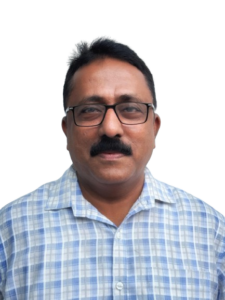
Dr. K. Ganesh, Assistant Director at the Marine Products Export Development Authority (MPEDA), is a dedicated professional contributing significantly to the advancement of sustainable aquaculture and the development of India’s seafood export sector. With expertise in aquaculture management, farm certification, and biosecurity, Dr. Ganesh has been instrumental in implementing initiatives that enhance the productivity and sustainability of aquaculture practices across the country.
He actively supports MPEDA’s mission to improve aquaculture practices by promoting internationally recognized certifications like Best Aquaculture Practices (BAP) and India’s own aquaculture eco-labels. His efforts have helped ensure that Indian aquaculture products meet global standards, enhancing their competitiveness in international markets. Dr. Ganesh has also been involved in educating farmers on adopting sustainable practices, such as responsible feed usage, disease management, and water quality monitoring.
In addition to certification programs, Dr. Ganesh contributes to disease surveillance and control strategies, which are vital for reducing economic losses and maintaining biosecurity in shrimp and fish farms. He is committed to capacity-building initiatives, working closely with farmers, entrepreneurs, and stakeholders to transfer knowledge and improve aquaculture productivity. Dr. Ganesh’s contributions have been vital in supporting India’s aquaculture sector, ensuring its growth while maintaining environmental and trade standards.
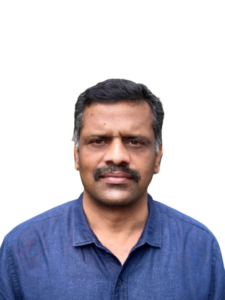 Dr. P. Jayagopal, Deputy Director at the Marine Products Export Development Authority (MPEDA), is a respected figure in aquaculture and seafood export development. With extensive experience in aquaculture management and policy implementation, he has made significant contributions to promoting sustainable aquaculture practices and enhancing India’s seafood export potential. His expertise spans areas such as aquaculture certification, disease management, and capacity building for stakeholders in the aquaculture value chain.
Dr. P. Jayagopal, Deputy Director at the Marine Products Export Development Authority (MPEDA), is a respected figure in aquaculture and seafood export development. With extensive experience in aquaculture management and policy implementation, he has made significant contributions to promoting sustainable aquaculture practices and enhancing India’s seafood export potential. His expertise spans areas such as aquaculture certification, disease management, and capacity building for stakeholders in the aquaculture value chain.
Dr. Jayagopal has played a key role in implementing MPEDA’s initiatives to ensure sustainability and quality in shrimp and fish farming. He has been actively involved in promoting farm certification programs like Best Aquaculture Practices (BAP) and other eco-labeling standards that meet global market requirements. By facilitating adoption of biosecurity measures and advanced farming practices, he has helped farmers achieve higher yields while adhering to environmental and international trade standards.
Additionally, Dr. Jayagopal has contributed to the development of programs aimed at empowering small-scale farmers with technical knowledge and market access. His work in disease surveillance and management has further strengthened the resilience of India’s aquaculture sector. Through his efforts, Dr. Jayagopal continues to support sustainable growth in aquaculture, ensuring its role as a key contributor to India’s seafood exports and global food security.
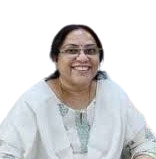 Dr. Vasant Kripa is the former Member Secretary of the Coastal Aquaculture Authority (CAA) in Chennai, India, and a highly respected scientist in marine biology, coastal aquaculture, and environmental management. With a career spanning over three decades, Dr. Kripa has been instrumental in developing policies and practices that promote sustainable and responsible coastal aquaculture in India. Her work has focused on balancing the growth of aquaculture with environmental conservation, ensuring that coastal ecosystems remain resilient and productive.
Dr. Vasant Kripa is the former Member Secretary of the Coastal Aquaculture Authority (CAA) in Chennai, India, and a highly respected scientist in marine biology, coastal aquaculture, and environmental management. With a career spanning over three decades, Dr. Kripa has been instrumental in developing policies and practices that promote sustainable and responsible coastal aquaculture in India. Her work has focused on balancing the growth of aquaculture with environmental conservation, ensuring that coastal ecosystems remain resilient and productive.
As Secretary of the CAA, Dr. Kripa played a pivotal role in regulating coastal aquaculture practices in India, implementing guidelines to safeguard coastal resources while supporting aquaculture’s role in rural livelihoods and food security. Her efforts in establishing biosecurity measures, best management practices, and environmental monitoring systems have helped reduce the ecological footprint of coastal aquaculture, enhancing its sustainability.
Dr. Kripa has published extensively on topics such as marine resource conservation, habitat restoration, and sustainable aquaculture practices. Known for her collaborative approach, she has worked with various stakeholders, including government agencies, research institutions, and coastal communities, to promote eco-friendly aquaculture practices. Dr. Kripa’s work has had a lasting impact on India’s coastal aquaculture policies, supporting both environmental health and the livelihoods of coastal communities.
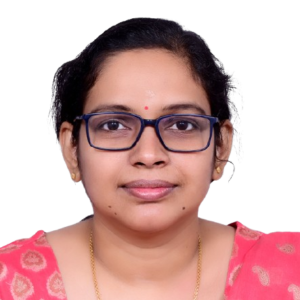 Dr. Sumithra T.G., Scientist at ICAR-Central Marine Fisheries Research Institute (ICAR-CMFRI), is an expert in microbiology with over a decade of experience, specializing in fish health and marine pathogen research. Since 2016, she has focused on characterizing pathogens and developing aquatic health management strategies to enhance mariculture production. Her work includes detailed profiling of bacterial, viral, and parasitic pathogens causing mortalities in cultured marine fishes, contributing valuable insights to the aquaculture sector through publications in peer-reviewed international journals.
Dr. Sumithra T.G., Scientist at ICAR-Central Marine Fisheries Research Institute (ICAR-CMFRI), is an expert in microbiology with over a decade of experience, specializing in fish health and marine pathogen research. Since 2016, she has focused on characterizing pathogens and developing aquatic health management strategies to enhance mariculture production. Her work includes detailed profiling of bacterial, viral, and parasitic pathogens causing mortalities in cultured marine fishes, contributing valuable insights to the aquaculture sector through publications in peer-reviewed international journals.
Dr. Sumithra is also engaged in analyzing symbiotic microbes associated with commercially significant marine species. Her team has optimized methods for microbiome profiling and assessing biochemical and immunological functions in marine animals, enabling them to evaluate various stressors in aquaculture systems. This research aids in understanding microbial dynamics and their impact on marine species’ health and growth.
A significant aspect of her work involves exploring microbiome-immunity-genome interactions in marine fish larvae. By identifying critical microbes and developing strategies for microbial and immunity manipulation, she aims to enhance larval survival and overall productivity in mariculture. Dr. Sumithra’s contributions play a vital role in improving sustainable aquaculture practices, supporting the health, resilience, and productivity of cultured marine species.
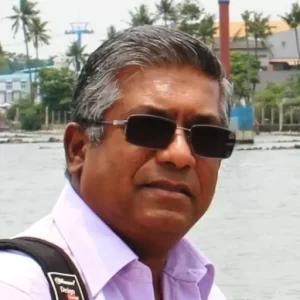 Dr. Rohana Subasinghe is the Managing Director of FutureFish, a consultancy specializing in sustainable aquaculture and fisheries development. With over 30 years of experience in aquaculture, aquatic animal health, and international fisheries, Dr. Subasinghe is a globally recognized expert dedicated to promoting sustainable practices that support food security, environmental protection, and socioeconomic growth.
Dr. Rohana Subasinghe is the Managing Director of FutureFish, a consultancy specializing in sustainable aquaculture and fisheries development. With over 30 years of experience in aquaculture, aquatic animal health, and international fisheries, Dr. Subasinghe is a globally recognized expert dedicated to promoting sustainable practices that support food security, environmental protection, and socioeconomic growth.
Before founding FutureFish, Dr. Subasinghe had a long and impactful career at the Food and Agriculture Organization (FAO) of the United Nations, where he led the Aquaculture and Fisheries Department. His work focused on developing global guidelines for sustainable aquaculture, addressing challenges like disease management, biosecurity, and responsible resource use. Dr. Subasinghe has been instrumental in shaping international policies and best practices that improve aquaculture sustainability and resilience, particularly for small-scale farmers in developing countries.
As the head of FutureFish, Dr. Subasinghe continues his mission to support sustainable aquaculture by advising governments, private sector stakeholders, and NGOs on issues ranging from production efficiency to environmental impact mitigation. Known for his expertise in responsible aquaculture, Dr. Subasinghe has significantly influenced global aquaculture development and remains a dedicated advocate for environmentally conscious and socially inclusive practices in the sector.
 Padma Shri Dr. Modadugu Vijay Gupta is a globally renowned scientist celebrated for his transformative contributions to aquaculture and rural development. Often referred to as the “Father of Blue Revolution,” his pioneering work has revolutionized aquaculture practices, particularly in developing countries, by making fish farming accessible to resource-poor farmers. Dr. Gupta’s innovations in low-cost aquaculture technologies have significantly enhanced food security, nutrition, and livelihoods for millions.
Padma Shri Dr. Modadugu Vijay Gupta is a globally renowned scientist celebrated for his transformative contributions to aquaculture and rural development. Often referred to as the “Father of Blue Revolution,” his pioneering work has revolutionized aquaculture practices, particularly in developing countries, by making fish farming accessible to resource-poor farmers. Dr. Gupta’s innovations in low-cost aquaculture technologies have significantly enhanced food security, nutrition, and livelihoods for millions.
One of his most notable achievements was the development of sustainable aquaculture systems using locally available resources, such as integrated rice-fish farming and polyculture techniques. These methods enabled small-scale farmers to maximize productivity while preserving ecological balance. His work on breeding and disseminating fast-growing fish species, including carps and tilapia, has greatly boosted fish yields in Asia and Africa.
Dr. Gupta also emphasized gender empowerment in aquaculture, helping women farmers gain access to fish farming technologies and training. His efforts have been recognized worldwide, earning him numerous accolades, including the prestigious World Food Prize in 2005.
Through his vision and dedication, Dr. Gupta has left an indelible mark on global aquaculture development, making it a powerful tool for poverty alleviation, environmental sustainability, and economic growth in underserved regions.
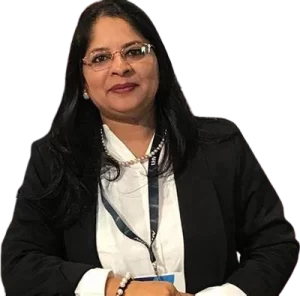 Dr. Subhashini C.R., Director of Aristogene Biosciences, is a prominent figure in the field of biotechnology with significant contributions to aquaculture health management. With expertise in molecular diagnostics and aquatic disease research, she has been instrumental in developing innovative solutions to address health challenges in aquaculture systems. Her work focuses on creating advanced diagnostic tools and health management products that enhance the sustainability and productivity of the aquaculture industry.
Dr. Subhashini C.R., Director of Aristogene Biosciences, is a prominent figure in the field of biotechnology with significant contributions to aquaculture health management. With expertise in molecular diagnostics and aquatic disease research, she has been instrumental in developing innovative solutions to address health challenges in aquaculture systems. Her work focuses on creating advanced diagnostic tools and health management products that enhance the sustainability and productivity of the aquaculture industry.
Under her leadership, Aristogene Biosciences has developed rapid, accurate diagnostic kits for the early detection of pathogens affecting shrimp, fish, and other aquaculture species. These tools have empowered farmers to identify and mitigate disease outbreaks promptly, reducing economic losses and promoting healthier stocks. Ms. Subhashini has also played a critical role in formulating biosecurity protocols and environmentally friendly health management products that minimize the reliance on antibiotics, supporting sustainable aquaculture practices.
In addition to her research and product development efforts, Ms. Subhashini is actively involved in capacity-building initiatives, providing training to aquaculture professionals and farmers on best practices in disease prevention and health management. Her contributions have significantly impacted the aquaculture sector by enhancing disease resilience and promoting sustainable, eco-friendly practices, ensuring long-term industry growth and environmental sustainability.
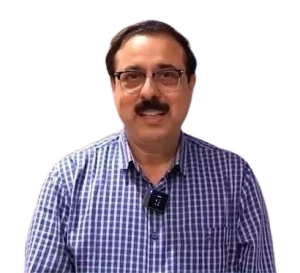 Dr. Pawan Dhar, is a renowned expert in synthetic biology and systems biology, with emerging contributions to aquaculture biotechnology. With a diverse scientific background, Dr. Dhar’s work emphasizes leveraging synthetic biology to address challenges in sustainable aquaculture and aquatic resource management.
Dr. Pawan Dhar, is a renowned expert in synthetic biology and systems biology, with emerging contributions to aquaculture biotechnology. With a diverse scientific background, Dr. Dhar’s work emphasizes leveraging synthetic biology to address challenges in sustainable aquaculture and aquatic resource management.
One of his notable contributions is the exploration of bioengineering solutions to enhance aquaculture productivity. By integrating synthetic biology techniques, he has worked on designing microbial consortia that improve water quality, promote fish health, and enhance feed efficiency, which are critical for sustainable aquaculture systems. His research also focuses on bio-manufacturing platforms for producing bioactive compounds and probiotics tailored for aquaculture applications, minimizing the reliance on antibiotics and chemical additives.
Dr. Dhar’s innovative approaches aim to improve resilience in aquaculture systems while reducing environmental impact. His work has paved the way for developing cost-effective and scalable solutions for disease management, nutrient optimization, and eco-friendly practices in aquaculture. Beyond research, he actively advocates for interdisciplinary collaboration, merging biology and technology to foster innovation. Dr. Dhar’s pioneering contributions hold significant promise for the future of sustainable aquaculture and global food security.
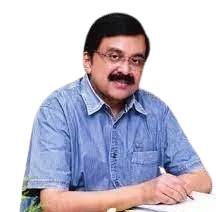 Dr. A. Gopalakrishnan, is a distinguished scientist whose contributions have significantly advanced marine fisheries and aquaculture research in India. With a career spanning decades, Dr. Gopalakrishnan played a pivotal role in promoting sustainable marine resource management, species diversification, and the development of mariculture technologies. Under his leadership, ICAR-CMFRI made remarkable strides in areas such as open-sea cage farming, marine biodiversity conservation, and stock enhancement programs.
Dr. A. Gopalakrishnan, is a distinguished scientist whose contributions have significantly advanced marine fisheries and aquaculture research in India. With a career spanning decades, Dr. Gopalakrishnan played a pivotal role in promoting sustainable marine resource management, species diversification, and the development of mariculture technologies. Under his leadership, ICAR-CMFRI made remarkable strides in areas such as open-sea cage farming, marine biodiversity conservation, and stock enhancement programs.
A key aspect of Dr. Gopalakrishnan’s work was his emphasis on genetic improvement and conservation of marine species. He spearheaded research on genetic mapping and broodstock development for commercially important fish and shellfish, ensuring the availability of high-quality seed for aquaculture. His focus on environmentally sustainable practices led to innovations in integrated multi-trophic aquaculture (IMTA) systems, which reduce ecological footprints while enhancing productivity.
As a visionary leader, Dr. Gopalakrishnan also prioritized capacity building and policy support, working closely with stakeholders to promote responsible aquaculture and fisheries management. His extensive contributions have had a lasting impact on India’s marine aquaculture sector, fostering growth, sustainability, and resilience while ensuring the livelihoods of coastal communities and the health of marine ecosystems.
 Dr. S. R. Krupesha Sharma, a Principal Scientist at the ICAR-Central Marine Fisheries Research Institute (ICAR-CMFRI), is a distinguished expert in marine aquaculture and sustainable mariculture practices. With extensive experience in developing innovative technologies and farming systems, his work has significantly advanced India’s marine aquaculture sector, particularly in the production of high-value species. Dr. Sharma specializes in seed production, grow-out culture, and the development of sustainable farming methods for finfish, shellfish, and seaweed, contributing to enhanced productivity and profitability for coastal communities.
Dr. S. R. Krupesha Sharma, a Principal Scientist at the ICAR-Central Marine Fisheries Research Institute (ICAR-CMFRI), is a distinguished expert in marine aquaculture and sustainable mariculture practices. With extensive experience in developing innovative technologies and farming systems, his work has significantly advanced India’s marine aquaculture sector, particularly in the production of high-value species. Dr. Sharma specializes in seed production, grow-out culture, and the development of sustainable farming methods for finfish, shellfish, and seaweed, contributing to enhanced productivity and profitability for coastal communities.
One of his notable contributions is the promotion of open-sea cage farming, a practice that has gained popularity as a sustainable alternative to traditional aquaculture systems. His work in optimizing cage design, site selection, and species suitability has helped expand this technology, supporting coastal livelihoods and reducing pressure on wild fish stocks. Dr. Sharma has also been instrumental in developing hatchery protocols to ensure the availability of high-quality seed for marine species.
In addition to his research, Dr. Sharma is actively involved in training programs, policy advocacy, and community engagement, fostering the adoption of best practices in mariculture. His efforts have played a crucial role in shaping sustainable marine aquaculture in India, promoting environmental stewardship and economic growth.
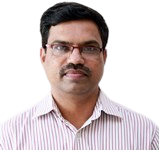 Dr. P.K. Patil, Principal Scientist in the Aquatic Animal Health and Environment Division at the ICAR-Central Institute of Brackishwater Aquaculture (ICAR-CIBA), is a leading expert in aquatic animal health and disease management. His work has significantly contributed to the sustainability and productivity of brackishwater aquaculture in India, focusing on health management strategies for farmed shrimp and fish species. Dr. Patil’s research addresses critical challenges such as disease outbreaks, biosecurity, and the environmental impact of aquaculture practices.
Dr. P.K. Patil, Principal Scientist in the Aquatic Animal Health and Environment Division at the ICAR-Central Institute of Brackishwater Aquaculture (ICAR-CIBA), is a leading expert in aquatic animal health and disease management. His work has significantly contributed to the sustainability and productivity of brackishwater aquaculture in India, focusing on health management strategies for farmed shrimp and fish species. Dr. Patil’s research addresses critical challenges such as disease outbreaks, biosecurity, and the environmental impact of aquaculture practices.
He is well-known for developing rapid diagnostic tools and protocols for early detection of pathogens, enabling timely interventions that minimize losses for aquaculture farmers. His work on health monitoring and biosecurity measures has been pivotal in reducing the reliance on antibiotics, promoting sustainable and eco-friendly aquaculture practices. Dr. Patil has also contributed to research on host-pathogen interactions, helping to better understand disease dynamics in brackishwater systems.
In addition to his research, Dr. Patil actively engages in capacity-building programs, training farmers, researchers, and stakeholders in sustainable aquaculture health management. His contributions have strengthened India’s brackishwater aquaculture sector, supporting livelihoods, improving productivity, and ensuring environmental sustainability through responsible aquaculture practices.
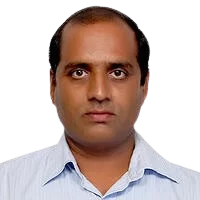 Dr. Prem Kumar, a Senior Scientist in the Finfish Culture Division at the ICAR-Central Institute of Fisheries Education (ICAR-CIFE), is recognized for his contributions to finfish aquaculture and sustainable fish farming practices. His research focuses on advancing breeding, seed production, and grow-out techniques for economically important finfish species, essential for enhancing fish farming efficiency and profitability. Dr. Kumar has been instrumental in developing improved methods for breeding and rearing native fish species, supporting biodiversity conservation while boosting aquaculture productivity in India.
Dr. Prem Kumar, a Senior Scientist in the Finfish Culture Division at the ICAR-Central Institute of Fisheries Education (ICAR-CIFE), is recognized for his contributions to finfish aquaculture and sustainable fish farming practices. His research focuses on advancing breeding, seed production, and grow-out techniques for economically important finfish species, essential for enhancing fish farming efficiency and profitability. Dr. Kumar has been instrumental in developing improved methods for breeding and rearing native fish species, supporting biodiversity conservation while boosting aquaculture productivity in India.
One of Dr. Kumar’s notable achievements is his work in the area of seed production technology, which addresses one of the primary challenges in aquaculture—reliable and high-quality seed supply. His innovations in hatchery management and nursery techniques have significantly increased survival rates and growth performance in key species, directly benefiting fish farmers. Additionally, his research on sustainable feed formulations and water quality management has contributed to more eco-friendly and cost-effective practices.
Dr. Kumar’s outreach efforts include training programs for farmers and aquaculture professionals, spreading knowledge on best practices and sustainable techniques. His contributions are vital to India’s aquaculture industry, promoting the responsible expansion of finfish farming to meet the growing demand for high-quality, sustainable seafood.
Scheduled Maintenance from 12th November 2024 22:00 to 23:59 IST (GMT+5:30). Submit button will be disabled during the maintenance hours
 Dr. David Verner-Jeffreys is a Senior Scientist at WorldFish and an esteemed expert in aquatic animal health and aquaculture biosecurity. With a background in fish pathology and disease management, Dr. Verner-Jeffreys has dedicated his career to developing solutions that enhance disease prevention and sustainable health practices in aquaculture systems globally. His research focuses on combating infectious diseases that impact fish farming, particularly in developing countries, where aquaculture plays a crucial role in food security and livelihoods.
Dr. David Verner-Jeffreys is a Senior Scientist at WorldFish and an esteemed expert in aquatic animal health and aquaculture biosecurity. With a background in fish pathology and disease management, Dr. Verner-Jeffreys has dedicated his career to developing solutions that enhance disease prevention and sustainable health practices in aquaculture systems globally. His research focuses on combating infectious diseases that impact fish farming, particularly in developing countries, where aquaculture plays a crucial role in food security and livelihoods.
A key aspect of Dr. Verner-Jeffreys’ work is the development of diagnostic tools and health management protocols that enable early detection and effective control of pathogens in aquaculture. His contributions include pioneering biosecurity measures and alternatives to antibiotic use, promoting environmentally friendly approaches to disease control. His research in microbial ecology and vaccine development for aquatic species has significantly reduced disease outbreaks, improving productivity and sustainability within the industry.
Dr. Verner-Jeffreys collaborates with governments, NGOs, and industry partners to promote knowledge-sharing and implement best practices across diverse aquaculture settings. His efforts are highly valued for advancing sustainable, responsible aquaculture practices worldwide, fostering resilience and supporting the livelihoods of smallholder farmers while enhancing the global supply of safe, high-quality seafood.
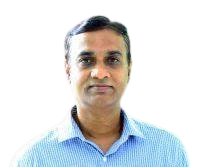 Dr. M. Shashi Shekhar, is a distinguished expert in aquatic animal health and environmental management in brackishwater aquaculture. With extensive experience in fish and shrimp health management, his work addresses critical challenges in disease prevention, environmental sustainability, and biosecurity, contributing to the growth and resilience of India’s brackishwater aquaculture sector. By emphasizing biosecurity, environmental monitoring, and eco-friendly health management practices, Dr. Shekhar has contributed to enhancing the resilience and sustainability of shrimp and fish farming.
Dr. M. Shashi Shekhar, is a distinguished expert in aquatic animal health and environmental management in brackishwater aquaculture. With extensive experience in fish and shrimp health management, his work addresses critical challenges in disease prevention, environmental sustainability, and biosecurity, contributing to the growth and resilience of India’s brackishwater aquaculture sector. By emphasizing biosecurity, environmental monitoring, and eco-friendly health management practices, Dr. Shekhar has contributed to enhancing the resilience and sustainability of shrimp and fish farming.
Dr. Shekhar’s research focuses on understanding disease dynamics, developing diagnostic tools, and creating effective management strategies for major pathogens affecting farmed shrimp and fish. His pioneering work on early disease detection and health management protocols has been instrumental in reducing disease-related losses, thereby enhancing productivity and profitability for aquaculture farmers. He also promotes the use of probiotics, immunostimulants, and other sustainable practices to reduce reliance on antibiotics, supporting both animal health and environmental sustainability and encouraging eco-friendly disease management solutions. His expertise has been crucial in managing diseases like white spot disease and vibriosis, which can cause substantial losses for farmers.
Dr. Shekhar is also a key figure in advancing environmental monitoring practices in aquaculture, ensuring that farming activities have minimal impact on surrounding ecosystems.
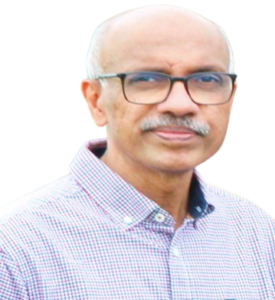 Dr. K.V. Rajendran is a prominent aquaculture scientist at the ICAR-Central Institute of Fisheries Education (ICAR-CIFE) in India, recognized for his expertise in fish health management and aquatic animal disease control. With a focus on advancing disease diagnostics, biosecurity, and sustainable health practices in aquaculture, Dr. Rajendran’s work has greatly contributed to improving the resilience and productivity of India’s aquaculture sector. His research addresses major challenges related to fish and shellfish health, particularly in diagnosing and managing viral, bacterial, and parasitic diseases that impact farmed species.
Dr. K.V. Rajendran is a prominent aquaculture scientist at the ICAR-Central Institute of Fisheries Education (ICAR-CIFE) in India, recognized for his expertise in fish health management and aquatic animal disease control. With a focus on advancing disease diagnostics, biosecurity, and sustainable health practices in aquaculture, Dr. Rajendran’s work has greatly contributed to improving the resilience and productivity of India’s aquaculture sector. His research addresses major challenges related to fish and shellfish health, particularly in diagnosing and managing viral, bacterial, and parasitic diseases that impact farmed species.
One of Dr. Rajendran’s significant contributions is the development of rapid diagnostic tools for early detection of pathogens, which has allowed fish farmers to respond swiftly to disease threats, reducing mortality rates and economic losses. His emphasis on biosecurity and environmentally responsible disease management has also led to protocols that reduce reliance on antibiotics, promoting safer and more sustainable aquaculture practices.
In addition to his research, Dr. Rajendran is a respected mentor and educator, training the next generation of aquaculture scientists and professionals in India. Through his publications, outreach, and collaborations with research institutions, Dr. Rajendran’s work has had a lasting impact on sustainable aquaculture development, benefiting both the industry and aquatic ecosystems.
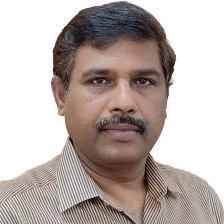 Dr. T. Raja Swaminathan is a renowned scientist at the ICAR-Central Institute of Fisheries Technology (ICAR-CIFT) in Kochi, India, with expertise in fish health management, aquaculture biosecurity, and disease diagnostics. His work focuses on addressing challenges related to aquatic animal health, particularly in ensuring sustainable and safe practices in India’s aquaculture industry. Dr. Swaminathan is recognized for his contributions to the detection and control of fish and shellfish diseases, which are critical for enhancing productivity and reducing economic losses in aquaculture.
Dr. T. Raja Swaminathan is a renowned scientist at the ICAR-Central Institute of Fisheries Technology (ICAR-CIFT) in Kochi, India, with expertise in fish health management, aquaculture biosecurity, and disease diagnostics. His work focuses on addressing challenges related to aquatic animal health, particularly in ensuring sustainable and safe practices in India’s aquaculture industry. Dr. Swaminathan is recognized for his contributions to the detection and control of fish and shellfish diseases, which are critical for enhancing productivity and reducing economic losses in aquaculture.
At ICAR-CIFT, Dr. Swaminathan has been instrumental in developing innovative diagnostic methods for early detection of pathogens in aquaculture systems. His research has emphasized the importance of biosecurity measures, helping aquaculture farms implement practices that prevent disease outbreaks and promote healthy, resilient fish stocks. Dr. Swaminathan’s work also supports the reduction of antibiotic usage in aquaculture, promoting sustainable and environmentally friendly practices.
As a mentor, he has guided numerous researchers and students in aquatic health science, strengthening India’s capacity in this crucial area. His extensive publications and expertise in aquaculture health management have contributed significantly to the growth of sustainable aquaculture practices in India, benefiting both industry and environmental conservation.
Dr. N. K. Sanil, a Principal Scientist at the ICAR-Central Marine Fisheries Research Institute (ICAR-CMFRI), is renowned for his expertise in aquatic animal health and his contributions to sustainable marine aquaculture. His research primarily focuses on fish pathology, disease diagnostics, and health management in marine and coastal aquaculture systems, which are essential for the resilience and growth of India’s marine farming industry. Dr. Sanil has played a crucial role in identifying and managing diseases affecting economically valuable marine species, including finfish, shellfish, and crustaceans, to ensure their health and productivity.
One of Dr. Sanil’s significant achievements is his development of diagnostic tools and protocols for early detection of pathogens, which help in mitigating disease outbreaks that can cause considerable losses in aquaculture. His work in understanding host-pathogen interactions and environmental factors affecting disease transmission has led to improved biosecurity measures and sustainable disease management strategies. By promoting best practices in health management, Dr. Sanil has contributed to minimizing antibiotic use in aquaculture, supporting both environmental sustainability and product safety.
As an educator and mentor, Dr. Sanil actively engages in training aquaculture professionals, enhancing the capacity of India’s aquaculture sector. His contributions continue to impact marine aquaculture practices, fostering healthier stocks and sustainable industry growth.
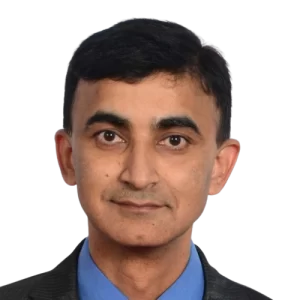 Dr. Neeraj Sood, a distinguished scientist at the ICAR-National Bureau of Fish Genetic Resources (ICAR-NBFGR) in India, is recognized for his work in fish genetics, conservation, and sustainable aquaculture practices. His research focuses on the genetic characterization and conservation of fish biodiversity, which is critical for protecting valuable genetic resources and promoting sustainable aquaculture. By identifying and cataloging fish species and their genetic diversity, Dr. Sood has contributed to the preservation of native fish species, ensuring that these resources can support resilient and productive aquaculture systems in India.
Dr. Neeraj Sood, a distinguished scientist at the ICAR-National Bureau of Fish Genetic Resources (ICAR-NBFGR) in India, is recognized for his work in fish genetics, conservation, and sustainable aquaculture practices. His research focuses on the genetic characterization and conservation of fish biodiversity, which is critical for protecting valuable genetic resources and promoting sustainable aquaculture. By identifying and cataloging fish species and their genetic diversity, Dr. Sood has contributed to the preservation of native fish species, ensuring that these resources can support resilient and productive aquaculture systems in India.
One of Dr. Sood’s notable contributions is his work on genetic improvement programs aimed at enhancing the growth, disease resistance, and overall quality of aquaculture species. Through selective breeding and genetic analysis, his research has helped develop strains of fish that are better suited to farming conditions, benefiting aquaculture productivity while maintaining genetic integrity. Dr. Sood’s work also addresses biosecurity and the mitigation of invasive species threats, which are crucial for safeguarding aquatic ecosystems.
In addition to his research, Dr. Sood is an advocate for the sustainable management of genetic resources in fisheries and aquaculture. His efforts have had a lasting impact on India’s aquaculture policies, supporting biodiversity conservation and the sustainable growth of the aquaculture industry.
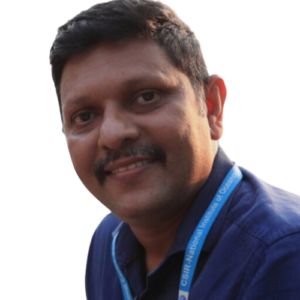
Dr. Anas Abdulaziz, a Senior Principal Scientist at the Council of Scientific and Industrial Research – National Institute of Oceanography (CSIR-NIO) in India, is a prominent researcher known for his contributions to marine biology and sustainable aquaculture development. His work focuses on marine ecosystem health, aquaculture sustainability, and the conservation of aquatic resources. Dr. Abdulaziz’s research has significantly advanced the understanding of how marine environments can support sustainable aquaculture practices without compromising ecosystem integrity.
One of Dr. Abdulaziz’s key areas of expertise is in the assessment of marine water quality and its implications for aquaculture, especially in open-sea and coastal aquaculture systems. His studies on environmental parameters and the carrying capacity of water bodies help optimize site selection and resource management for aquaculture, reducing the impact on natural ecosystems. His work also supports the development of sustainable aquaculture models that integrate well with the surrounding marine environment, particularly for species like fish, bivalves, and seaweeds.
Dr. Abdulaziz is also deeply involved in policy advisory roles, providing insights into regulatory frameworks for environmentally sound aquaculture practices. Through his research, publications, and outreach, he has made substantial contributions to India’s marine aquaculture sector, promoting practices that ensure economic viability while protecting ocean health.
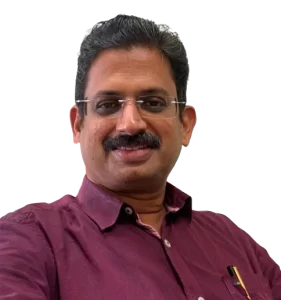 Dr. B. Santhosh, a leading scientist at the Vizhinjam Regional Centre of the ICAR-Central Marine Fisheries Research Institute (ICAR-CMFRI), is known for his impactful contributions to marine aquaculture and coastal fisheries development in India. His work focuses on advancing sustainable practices in mariculture, particularly in seed production, hatchery technology, and the cultivation of high-value marine species like finfish, shellfish, and sea cucumbers. Dr. Santhosh’s research has played a critical role in supporting livelihood opportunities for coastal communities by promoting aquaculture as a viable and environmentally sustainable industry.
Dr. B. Santhosh, a leading scientist at the Vizhinjam Regional Centre of the ICAR-Central Marine Fisheries Research Institute (ICAR-CMFRI), is known for his impactful contributions to marine aquaculture and coastal fisheries development in India. His work focuses on advancing sustainable practices in mariculture, particularly in seed production, hatchery technology, and the cultivation of high-value marine species like finfish, shellfish, and sea cucumbers. Dr. Santhosh’s research has played a critical role in supporting livelihood opportunities for coastal communities by promoting aquaculture as a viable and environmentally sustainable industry.
One of his notable contributions is the development of hatchery protocols that ensure the availability of quality seed stock, crucial for the success of marine farming systems. He has also worked extensively on popularizing cage culture and other mariculture techniques in coastal regions, helping fishers and farmers diversify their income sources while reducing fishing pressure on wild stocks.
In addition to his technical innovations, Dr. Santhosh is deeply involved in capacity-building initiatives, training local communities, researchers, and extension workers in sustainable aquaculture practices. His efforts have supported the growth of a sustainable mariculture sector in India, enhancing food security and economic stability for coastal populations, while promoting responsible resource management.
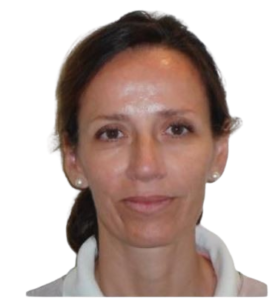 Dr. Victoria Alday-Sanz is a renowned aquaculture expert at National Aquaculture Group (NAQUA) in Saudi Arabia, recognized globally for her work in shrimp health management, biosecurity, and sustainable aquaculture practices. With a background in veterinary science and extensive experience in aquatic animal health, Dr. Alday-Sanz has played a critical role in advancing shrimp farming practices to enhance productivity while maintaining rigorous biosecurity standards. Her work is instrumental in addressing major health challenges in shrimp aquaculture, particularly in the prevention and management of viral and bacterial diseases that can impact large-scale operations.
Dr. Victoria Alday-Sanz is a renowned aquaculture expert at National Aquaculture Group (NAQUA) in Saudi Arabia, recognized globally for her work in shrimp health management, biosecurity, and sustainable aquaculture practices. With a background in veterinary science and extensive experience in aquatic animal health, Dr. Alday-Sanz has played a critical role in advancing shrimp farming practices to enhance productivity while maintaining rigorous biosecurity standards. Her work is instrumental in addressing major health challenges in shrimp aquaculture, particularly in the prevention and management of viral and bacterial diseases that can impact large-scale operations.
At NAQUA, Dr. Alday-Sanz has implemented innovative health management and biosecurity programs designed to prevent disease outbreaks and promote sustainable farming practices. Her research and applied expertise have led to the development of robust disease monitoring systems and management protocols that are widely regarded as industry benchmarks for shrimp farming.
Dr. Alday-Sanz is also a leading advocate for sustainable aquaculture, focusing on minimizing environmental impact while ensuring economic viability. Her contributions extend beyond NAQUA, as she frequently collaborates with international experts, shares insights through publications, and participates in forums to promote best practices. Her work continues to influence shrimp farming practices worldwide, supporting a more resilient and sustainable aquaculture industry.

Prof. Sophie St-Hilaire, a professor at City University of Hong Kong, is a globally recognized expert in aquaculture health management, known for her pioneering research on fish disease epidemiology and sustainable aquaculture practices. Her work focuses on understanding and mitigating the spread of infectious diseases in aquaculture systems, which is crucial for maintaining productivity and supporting global food security. Prof. St-Hilaire’s research combines field studies with advanced statistical modeling to assess disease risks and develop targeted prevention and control strategies, benefiting aquaculture industries worldwide.
She has made significant contributions to the study of emerging diseases in aquaculture, particularly in high-density farming systems where health management is challenging. By investigating host-pathogen interactions and environmental factors affecting disease transmission, Prof. St-Hilaire’s work has led to practical solutions that improve biosecurity, reduce antibiotic use, and support healthier fish populations.
Prof. St-Hilaire collaborates with international organizations, governments, and industry stakeholders to promote sustainable practices and enhance disease management strategies. Through her research, publications, and training of future aquaculture scientists, she has helped advance knowledge and improve aquaculture practices globally, contributing to a more sustainable, efficient, and environmentally responsible aquaculture industry.
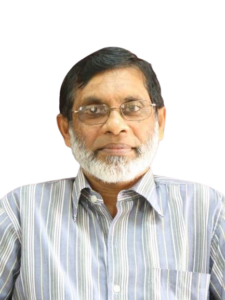 J.M.P.K. Jayasinghe is a distinguished figure in aquaculture, known for his contributions to sustainable fish farming practices, particularly in Asia. With a focus on innovative aquaculture technologies and resource management, he has dedicated his career to improving the productivity, efficiency, and environmental sustainability of aquaculture systems. Jayasinghe has been involved in developing best practices that help small-scale and commercial farmers enhance yields while minimizing the environmental impact, which is crucial for both economic growth and ecological health.
J.M.P.K. Jayasinghe is a distinguished figure in aquaculture, known for his contributions to sustainable fish farming practices, particularly in Asia. With a focus on innovative aquaculture technologies and resource management, he has dedicated his career to improving the productivity, efficiency, and environmental sustainability of aquaculture systems. Jayasinghe has been involved in developing best practices that help small-scale and commercial farmers enhance yields while minimizing the environmental impact, which is crucial for both economic growth and ecological health.
Jayasinghe’s work emphasizes sustainable resource use, biosecurity, and disease management, aiming to address challenges that hinder aquaculture development. By promoting efficient water use, nutrient recycling, and sustainable feed practices, he has contributed to reducing the ecological footprint of fish farming. His research and extension activities have also focused on the integration of traditional and modern aquaculture techniques, helping to increase productivity without compromising natural resources.
Through his collaborations with research institutions, government bodies, and industry stakeholders, Jayasinghe has played a significant role in shaping aquaculture policies and practices that prioritize environmental stewardship and economic resilience. His efforts continue to influence the industry, supporting both sustainable development and the livelihoods of aquaculture-dependent communities.
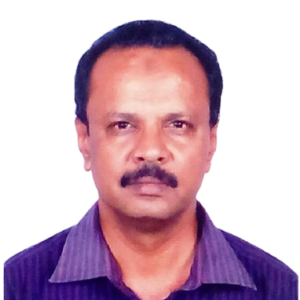
Dr. A. S. Sahul Hameed is an internationally recognized expert in aquatic animal health and the Director of the Aquatic Animal Health Laboratory at C. Abdul Hakeem College in Tamil Nadu, India. As a designated expert for the World Organisation for Animal Health (WOAH), Dr. Hameed has contributed significantly to global aquatic animal health, particularly in the area of shrimp and fish diseases. His research focuses on understanding and managing viral and bacterial infections in aquaculture, with the goal of developing sustainable practices that protect both industry productivity and environmental health.
Dr. Hameed is known for his pioneering work on major viral diseases in shrimp, such as White Spot Syndrome Virus (WSSV), and has developed diagnostic tools and preventive strategies that are widely used in the aquaculture industry. His expertise has been instrumental in identifying and characterizing emerging pathogens, as well as promoting biosecurity measures that prevent the spread of disease in aquaculture systems.
At his laboratory, Dr. Hameed leads a team focused on innovative research and capacity building, training numerous students and researchers in aquatic pathology. His contributions have had a lasting impact on the aquaculture sector in India and internationally, supporting sustainable development and health management in aquatic farming systems.
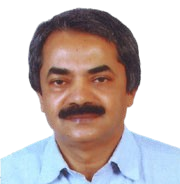 Dr. K.M. Shankar is the Vice Chairman of the Asian Fisheries Society, Indian Branch, and former Dean of the College of Fisheries in Mangalore, India. A highly respected figure in fish health management and aquaculture, Dr. Shankar has contributed significantly to advancing aquaculture science, particularly in aquatic animal health, biotechnology, and sustainable fisheries. His research focuses on pathogen detection, disease management, and biosecurity in aquaculture, addressing key challenges to improve productivity and sustainability in the industry.
Dr. K.M. Shankar is the Vice Chairman of the Asian Fisheries Society, Indian Branch, and former Dean of the College of Fisheries in Mangalore, India. A highly respected figure in fish health management and aquaculture, Dr. Shankar has contributed significantly to advancing aquaculture science, particularly in aquatic animal health, biotechnology, and sustainable fisheries. His research focuses on pathogen detection, disease management, and biosecurity in aquaculture, addressing key challenges to improve productivity and sustainability in the industry.
During his tenure as Dean, Dr. Shankar led numerous initiatives to modernize aquaculture education and research, fostering a strong foundation for innovation and collaboration within India’s fisheries sector. He has been instrumental in introducing advanced molecular and biotechnological techniques for disease diagnostics, enabling rapid response and effective management of fish diseases that impact aquaculture yields. His work has been pivotal in developing sustainable practices that reduce dependency on antibiotics and enhance biosecurity in aquaculture systems.
Dr. Shankar’s contributions to the Asian Fisheries Society reflect his dedication to knowledge sharing and capacity building in the region. As a mentor and educator, he has influenced many young scientists, strengthening India’s position in global aquaculture research. His work continues to impact policies and practices, promoting sustainable aquaculture and food security in Asia.
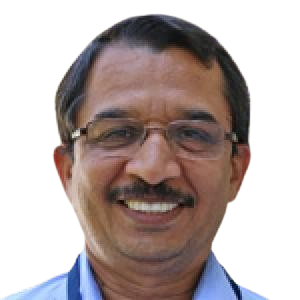
Dr. C.V. Mohan is an Emeritus Scientist at WorldFish and former head of the Aquatic Animal Health Program at WorldFish, Malaysia. With over three decades of expertise in aquatic animal health and aquaculture, Dr. Mohan is internationally recognized for his contributions to fish health management, sustainable aquaculture practices, and aquatic biosecurity. His work has focused on improving disease prevention, diagnosis, and control in aquaculture, which is vital for the resilience and productivity of global fish farming systems.
During his tenure at WorldFish, Dr. Mohan led initiatives aimed at strengthening health management in small-scale aquaculture, particularly in Asia and Africa, where aquaculture is crucial for food security and economic stability. His research has addressed critical issues such as pathogen surveillance, epidemiology, and the development of low-cost diagnostic tools to help farmers prevent and manage disease outbreaks effectively.
Dr. Mohan’s efforts in promoting biosecurity and sustainable practices have contributed to shaping global policies and best practices, ensuring safer and more productive aquaculture systems. Known for his collaborative approach, Dr. Mohan has worked with governments, international organizations, and local communities, advocating for practices that enhance both environmental sustainability and socio-economic benefits in aquaculture. His impact extends globally, influencing policy and practice in aquatic animal health.
 Prof. Arun K. Dhar is a Professor and Director of the Aquaculture Pathology Laboratory at the School of Animal & Comparative Biomedical Sciences, The University of Arizona, USA. An expert in aquaculture pathology and virology, Prof. Dhar is highly regarded for his research on diseases affecting shrimp and other aquatic species. His work focuses on identifying, understanding, and managing viral pathogens that pose significant threats to aquaculture industries globally.
Prof. Arun K. Dhar is a Professor and Director of the Aquaculture Pathology Laboratory at the School of Animal & Comparative Biomedical Sciences, The University of Arizona, USA. An expert in aquaculture pathology and virology, Prof. Dhar is highly regarded for his research on diseases affecting shrimp and other aquatic species. His work focuses on identifying, understanding, and managing viral pathogens that pose significant threats to aquaculture industries globally.
Prof. Dhar’s research has led to the development of advanced diagnostic tools, vaccines, and management practices that help prevent and control disease outbreaks in shrimp farming, contributing to the health and sustainability of aquaculture systems. His work on diseases such as White Spot Syndrome Virus (WSSV) and other viral pathogens has been instrumental in enhancing biosecurity measures and disease resilience in shrimp aquaculture, which is vital for food security and economic stability in many countries.
As a leader in the field, Prof. Dhar collaborates with government agencies, research institutions, and industry stakeholders worldwide, aiming to promote sustainable aquaculture practices. His contributions to aquaculture pathology have made a significant impact on disease management strategies and continue to benefit global aquaculture production and food safety.
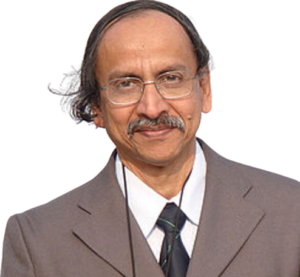 Dr. Iddya Karunasagar is a distinguished Indian microbiologist and food safety expert, known for his pioneering work in aquatic microbiology, aquaculture health, and public health. His research focuses on seafood safety and disease management in aquaculture, with significant contributions to understanding and controlling microbial pathogens, such as Vibrio species, which affect marine organisms. His work has helped develop diagnostic tools and strategies that promote sustainability in aquaculture and ensure safer seafood.
Dr. Iddya Karunasagar is a distinguished Indian microbiologist and food safety expert, known for his pioneering work in aquatic microbiology, aquaculture health, and public health. His research focuses on seafood safety and disease management in aquaculture, with significant contributions to understanding and controlling microbial pathogens, such as Vibrio species, which affect marine organisms. His work has helped develop diagnostic tools and strategies that promote sustainability in aquaculture and ensure safer seafood.
Dr. Karunasagar has collaborated with international organizations like the FAO and WHO, contributing to global guidelines for seafood safety standards. His expertise has been vital in harmonizing safety practices across the industry, enhancing the safety of seafood products worldwide.
A leader in addressing antimicrobial resistance (AMR) in aquaculture, Dr. Karunasagar advocates for sustainable, eco-friendly alternatives to antibiotics, such as probiotics, to manage aquaculture health and reduce AMR risks. His research has been influential in shaping global policies on AMR.
With numerous publications and awards to his name, Dr. Karunasagar’s work continues to impact industry practices, food safety, and public health globally. His legacy extends through his mentorship of emerging scientists in marine biotechnology and microbiology.
 Dr. Pramoda Kumar Sahoo is the Director-cum-ICAR National Professor at the Indian Council of Agricultural Research-Central Institute of Freshwater Aquaculture (ICAR-CIFA). A leading expert in fish health management and aquatic animal diseases, Dr. Sahoo’s work focuses on advancing disease control, immunology, and molecular biology in freshwater aquaculture. His research is pivotal in improving the health, resilience, and sustainability of India’s aquaculture industry, which plays a vital role in food security and rural livelihoods.
Dr. Pramoda Kumar Sahoo is the Director-cum-ICAR National Professor at the Indian Council of Agricultural Research-Central Institute of Freshwater Aquaculture (ICAR-CIFA). A leading expert in fish health management and aquatic animal diseases, Dr. Sahoo’s work focuses on advancing disease control, immunology, and molecular biology in freshwater aquaculture. His research is pivotal in improving the health, resilience, and sustainability of India’s aquaculture industry, which plays a vital role in food security and rural livelihoods.
Dr. Sahoo’s research has led to significant breakthroughs in understanding immune responses in fish and developing vaccines, diagnostic tools, and genetic markers for disease resistance. By identifying key pathogens affecting aquaculture species and creating strategies to mitigate their impact, his work helps reduce economic losses due to disease outbreaks, benefiting both large-scale and small-scale aquaculture operations.
In his leadership role at ICAR-CIFA, Dr. Sahoo has fostered collaboration between researchers, government agencies, and industry stakeholders, aiming to implement advanced disease management practices and improve production efficiency. A dedicated educator, he has mentored numerous students and young scientists, contributing to capacity-building in fish health research. Dr. Sahoo’s contributions have had a profound impact on sustainable aquaculture development in India.
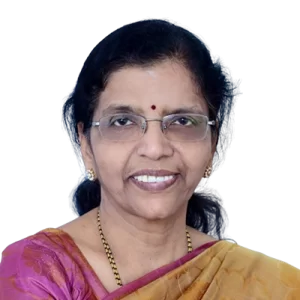
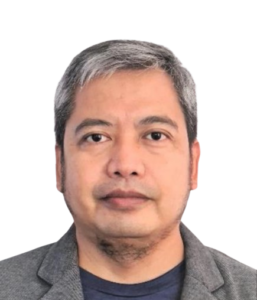 Dr. Eduardo Leano is the Director General of the Network of Aquaculture Centres in Asia-Pacific (NACA), an intergovernmental organization focused on sustainable aquaculture development in the Asia-Pacific region. With a strong background in aquatic animal health and pathology, Dr. Leano has dedicated his career to advancing sustainable aquaculture practices, improving disease management, and promoting biosecurity within the industry.
Dr. Eduardo Leano is the Director General of the Network of Aquaculture Centres in Asia-Pacific (NACA), an intergovernmental organization focused on sustainable aquaculture development in the Asia-Pacific region. With a strong background in aquatic animal health and pathology, Dr. Leano has dedicated his career to advancing sustainable aquaculture practices, improving disease management, and promoting biosecurity within the industry.
Before becoming Director General, Dr. Leano held key roles in NACA, where he contributed to several regional initiatives aimed at strengthening aquaculture health management and fostering collaboration among member countries. His work has been pivotal in developing strategies to address disease outbreaks, improving diagnostic capabilities, and creating best practice guidelines to enhance the resilience of aquaculture systems.
Dr. Leano has collaborated with international agencies and governments, supporting capacity-building programs, disease monitoring, and knowledge sharing to advance safe and sustainable aquaculture practices across the Asia-Pacific. Under his leadership, NACA continues to prioritize food security, environmental sustainability, and livelihood development in member countries. Dr. Leano’s contributions have had a substantial impact on aquaculture practices and policies, establishing him as a key figure in the region’s efforts to promote responsible and resilient aquaculture development.
